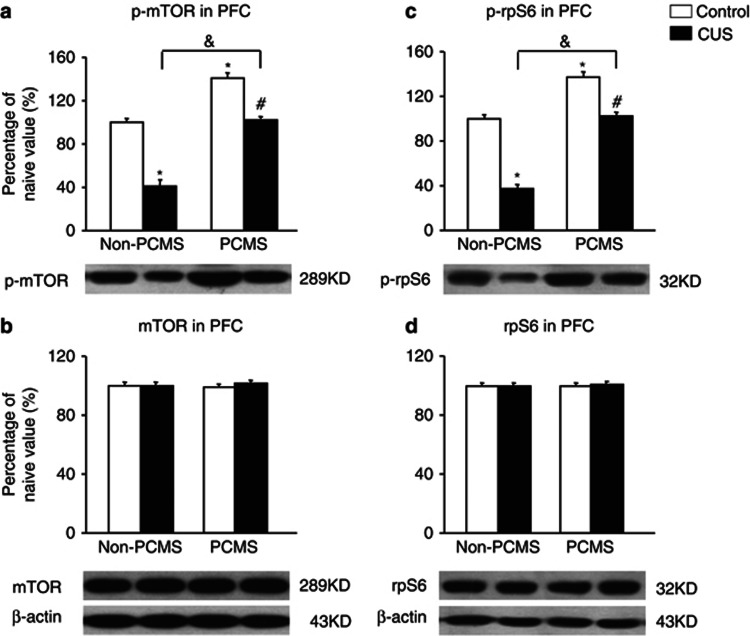Figure 8.
Predictable chronic mild stress (PCMS) during adolescence resisted the chronic unpredictable stress (CUS)-induced decrease in mammalian target of rapamycin (mTOR) signaling activity in the prefrontal cortex (PFC) in adulthood. PCMS during adolescence increased phosphorylated (p)-mTOR and p-S6 ribosomal protein (rpS6) levels in the PFC (a, c), and CUS in adulthood decreased p-mTOR and p-rpS6 levels in the PFC (a, c). PCMS during adolescence resisted the CUS-induced decrease in mTOR signaling activity in the PFC in adulthood (a, c). Total mTOR and rpS6 levels were not significantly changed in the PFC (b, d) in the four groups. The data are expressed as mean±SEM. Representative band intensities of the western blot are shown on the bottom (n=6 per group). *p<0.05, compared with the control group; #p<0.05, PCMS+CUS group compared with PCMS+control group; &p<0.05, PCMS+CUS group compared with the CUS group.

